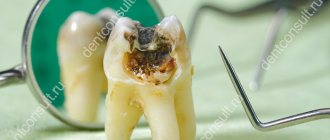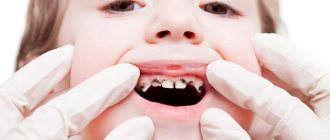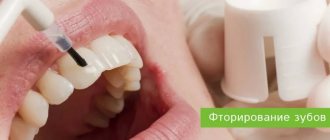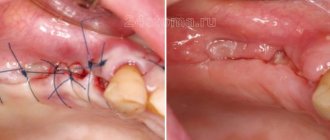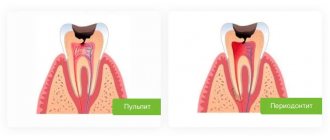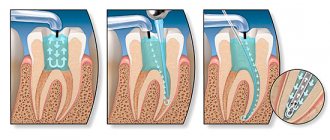Long gone are the days when everyone took calcium gluconate for strong teeth. Science moves forward, new chemical compounds are discovered, experiments are carried out with already familiar ones - in general, new interesting and useful information constantly appears. Including information about vitamins and minerals that have a positive effect on dental health.
Buying good vitamins in Moscow is not a problem now, however, this does not reduce the number of questions. For example, is it better to prefer single drugs or complex ones, how to take them - before or after meals; Which vitamins should an adult buy, and which ones are suitable for very young children?
All these questions will be answered by doctors and practicing dentists at one of the leading clinics in the capital.
What vitamins and minerals are missing if you have bad teeth?
Most often, healthy and strong teeth are associated with calcium. What traditional medicine does not recommend for this is powder from eggshells, from corals, and even ordinary chalk. Unfortunately, the human body is much more complex than an ordinary chemical flask. Regular consumption of ground organic calcium will not always lead to a positive result.
In order to absorb the required amount of this substance, it is necessary to ensure that some other minerals and vitamins enter the body. Moreover, all of them must be either in an active form, or in such a form that our body itself can quickly convert them into such. A prerequisite is the stability of the complex in the aggressive environment of gastric acid, or, on the contrary, it should have a positive effect on the absorption of one or another substance we need.
When it comes to teeth, the presence of calcium, vitamin D3, magnesium, phosphorus and other active substances in the diet is mandatory. Despite the good reviews from adherents of “grandmother’s recipes,” it is unlikely that you will be able to limit your dental care to eggshells only.
Is it possible to get your daily requirement of vitamins and minerals from food?
The calcium content in our usual foods is quite high. With a balanced diet, there is no problem in getting the 1000 mg due to a person. Same with other essential vitamins and minerals. However, one nuance remains: does everyone adhere to a balanced diet, when the diet contains sufficient quantities of sea fish, fresh herbs, various vegetable oils, seeds and nuts?
Most often, the diet of the modern average person is poor in vitamins and minerals, so it is better to buy them. Fortunately, pharmacies have a huge selection of drugs indicating which vitamins and minerals they contain and in what quantities.
It is worth mentioning vitamin D separately. Whatever products contain it, the bulk of it is synthesized in the body under the influence of sunlight. This means, in addition to a balanced diet, we need to spend enough time outdoors on sunny days. How many working people can afford such luxury? This means that a good vitamin complex is simply a must for anyone who monitors their health, and in particular the condition of their teeth and oral cavity in general.
Complivit Oftalmo
These vitamins, which improve vision, are intended for children from 3 to 14 years old. "Complivit Oftalmo" is presented in the form of a powder for the preparation of a suspension. Vitamins strengthen the child’s body in general and support vision in particular. "Complivit" contains the following substances: zeaxanthin and lutein - carotenoids of plant origin that help improve vision. If a child often sits in front of gadget screens and strains his eyes, the need for these substances increases sharply. The complex contains 9 vitamins and 3 microelements, they protect the eyes from the negative radiation of the monitor and UV rays. The only drawback is that Complivit Oftalmo contains few minerals, but since these vitamins are specifically for vision, everything is quite logical. Excellent vitamins to prevent vision problems. The main thing is an integrated approach and proper organization of a healthy lifestyle.
Complivit Oftalmo for children
JSC Pharmstandard-UfaVITA, Russia
Complivit Ofthalmo for children is specially designed for children from 3 to 14 years old, it contains the most important components: lutein and zeaxanthin, which are responsible for the acuity and quality of vision. The Complivit Ophthalmo complex for children includes vitamins, minerals and plant carotenoids that are important for vision, which: - improve the functional state of the visual organ; - help reduce visual fatigue and improve vision under increased visual stress; - lutein and zeaxanthin protect the eye structures from damage caused by ultraviolet radiation, as well as radiation from computers, televisions, and displays.
232
- Like
- Write a review
Microelements necessary for bones and teeth
The use of calcium preparations in dentistry is mandatory not only for prevention, but also for dental treatment. In order for this element to better penetrate bone tissue in medications and dietary supplements, it is combined with other minerals, vitamins and even Omega-3 fatty acids. Pharmacy drugs are sold under a variety of names, but to choose the best one, you need to carefully read the composition in the annotation.
Calcium
If we consider medications, then calcium and calcium are different. For example, in the instructions for using calcium gluconate injections there is not a word about teeth, which means this drug is not suitable for us. The same can be said about calcium chloride or calcium chloride, which is used in medicine for completely different purposes. Neither calcium oxide nor calcium hydroxide are also suitable for strengthening tooth enamel, since they are practically not absorbed by the body.
Modern pharmacology offers us essentially five types of compounds - gluconate, carbonate, citrate, malate and chelate molecules. The price for them is completely different - from mere pennies for calcium carbonate to impressive sums for glycinates and bisglycinates (chelates).
- Calcium gluconate is the most affordable drug, known since Soviet times. One can say something cheap and cheerful about him. To get the maximum effect, the tablet must be chewed and washed down with plenty of water.
- Calcium carbonate is a good form to absorb. Rapidly breaks down in the body, releasing free calcium.
- Calcium citrate - until recently was considered the most active form. Also releases free calcium in the lumen of the small intestine.
- Calcium malate is similar to the previous one, only in combination not with citric acid, but with malic acid.
- Calcium glycinate and bisglycinate are chelated forms or organic calcium. Even though it is a synthetic molecule, it has the best properties of natural organic calcium compounds. Firstly, it immediately penetrates cell membranes as an organic molecule (free calcium needs to undergo a number of modifications for this). Secondly, it does not affect the absorption and activity of iron ions, zinc and some medications that were previously not recommended to be taken with calcium.
For maximum effect, all calcium supplements should be taken on an empty stomach one hour before meals. This should be done in the evening, since the peak metabolism of this mineral occurs around 18:00. If the daily dose is more than 500 mg, then it is advisable to divide it into 2-3 doses - anyway, more than 500 mg at a time will not be absorbed.
Phosphorus
In order for calcium from the blood to penetrate into the teeth and bones, and to fix it there, phosphorus is needed. In good vitamins for men and women, the dose of this mineral should be about half the calcium content. In general, it is recommended to take up to 1000 mg of phosphorus per day, and approximately half of this figure should come from food.
Without phosphorus, calcium is absorbed much worse, and most importantly, it begins to be deposited in tissues other than bones and teeth, which leads to the development of various diseases.
Magnesium
The relationship between calcium and magnesium in the body is very complex. Magnesium is directly involved in the mineralization of bones and teeth, being a kind of cement that holds calcium together. At the same time, he is its antagonist - that is, he performs absolutely opposite tasks.
In order to have strong teeth, it is necessary that at least 400 mg of magnesium enter the body daily. It is better to take it separately from calcium supplements, since their competition manifests itself at the absorption stage, so one thing will be absorbed per unit of carrier molecule - either calcium or magnesium.
Fluorine and boron
Fluoride is an essential mineral in the fight against tooth decay. In teeth it is found in the form of a sparingly soluble complex that is very resistant to acids. It allows the enamel to maintain its protective properties even in an acidic environment, when carious bacteria are most active.
Boron also promotes the absorption of calcium and prevents its loss by dental and bone tissue.
For fluoride and boron, optimal daily doses have not yet been established, which exist for most vitamins and microelements, however, when buying a multivitamin complex for dental health, you need to make sure that they are included in it.
Zinc, copper, manganese
Zinc is part of the dentin of teeth. It is involved in the formation of coarse-fiber bone tissue. Its optimal daily dose is 15 mg.
Copper is very important for gum health. In combination with calcium, it is even used to treat inflammatory periodontal diseases in the acute phase. The maximum daily dose is 2 mg.
Manganese plays an important role in the synthesis of chondroitin and is found in tooth dentin. To maintain healthy teeth and bones, it is enough to take at least 2 mg of manganese per day.
Professional oral hygiene
Due to his age, a child, no matter how well his parents teach him to care for his oral cavity, does not do it well enough, so plaque accumulates on the enamel. And under such conditions, the probability of developing caries on baby teeth is almost one hundred percent. This means that the child also needs additional professional care, that is, comprehensive teeth cleaning, which will be the best prevention of caries and inflammation of periodontal tissue.
We recommend carrying out comprehensive hygiene 2-3 times a year, not only to prevent caries, but also to familiarize the child with the work of a doctor, instruments and the dental office - he will be less afraid and when treatment is required, the process will be much easier. It can be carried out from the moment the child’s primary teeth have fully grown.
What is the difference between a pediatric procedure and an adult one? Children do not use abrasive compounds, i.e. Air Flow device is not used. Cleaning fragile enamel is carried out as carefully as possible:
- Using a brush and polishing paste, the doctor cleans all hard-to-reach areas,
- sometimes an ultrasonic scaler is used to remove solid deposits (if necessary),
- The enamel is coated with a protective remineralizing fluoride varnish.
What vitamins should I take for dental health?
The table of vitamins contains substances that are synthesized in our body in sufficient quantities, and there are those in which a person is deficient. Especially at certain stages of life. For example, women over 50 need additional vitamin E capsules, and in winter almost everyone requires increased doses of vitamin D.
Almost the entire spectrum of vitamins is necessary for dental health, however, some of them play a leading role in calcium metabolism. And calcium, as we have already found out, is the basis of dentin and enamel.
Vitamin D3
The main driver of calcium metabolism is vitamin D.
By the name vitamin D we mean a complex of active substances. Cholecalciferol (vitamin D3) is formed in the body under the influence of sunlight, and ergocalciferol (vitamin D2) can only be obtained from food. Many people are interested in which one is better to buy – water-soluble D2 or fat-soluble D3? In fact, both of them equally contribute to the absorption of calcium by the body, so you can choose either one and take it according to the instructions.
Many doctors recommend getting tested for vitamin D before you start taking it in tablets. This makes sense, since fat-soluble vitamins can accumulate in the body and cause various diseases.
The minimum daily dose for adults and children is 400 units.
Vitamin C, ascorbic acid
Ascorbic acid takes part in the synthesis of collagen, which is part of dentin. Collagen provides tissue strength. Without it, teeth would be fragile and brittle.
If we talk about which vitamins you can drink in large doses, then ascorbic acid is one of them. The minimum daily dose of vitamin C is 60 mg, however, sometimes it is advisable to increase it to 1000 mg. Ascorbic acid does not accumulate in the body, but is immediately excreted in the urine.
Vitamin K
The trivial name vitamin K combines vitamin K1 (phylloquinone) and K2 (menaquinone). The first of them is found in some plant foods, and the second is synthesized in our intestines with the participation of fats. In pharmacies you can usually buy only phylloquinone, while scientists have found that it is less active than its counterpart.
The daily dose of vitamin K2 is approximately 80 mg. It simply needs to be taken along with calcium for the normal condition of the enamel. Menaquinone is needed to form the correct spatial lattice of an organic molecule containing calcium.
Vitamin B complex
Vitamins B1, B6, B12 and others, although not directly involved in the synthesis of dentin and enamel, help maintain normal metabolism in general.
Daily doses of B vitamins in tablets are:
- Vitamin B1 – 1.5 mg.
- Vitamin B2 – 1.7 mg.
- Vitamin B3 – 20 mg.
- Vitamin B5 – 10 mg.
- Vitamin B6 – 2 mg.
- Vitamin B12 – 6 mcg.
Oral hygiene training
From the age of 6-7 months, you need to clean your baby’s teeth using special rubber brushes. Oral hygiene using toothpaste and brushes should be taught from the age of 1-1.5 years. Please note that the paste for these purposes must also be correct - without fluoride. Children constantly swallow the product; fluoride contributes to the development of a disease such as fluorosis, as a result of which thin enamel is destroyed.
The main task of parents is to teach their child to properly perform hygiene procedures, because the accumulation of food debris on the teeth and gums contributes to the formation of soft and hard plaque. If a child does not take proper care of his teeth, no amount of prevention or strengthening of enamel will help avoid caries and inflammation in the oral cavity.
1 Kutsevlyav V.I. The role of timely sanitation of the oral cavity in the prevention of anomalies and deformations of the dental system, 2008.
Dental vitamins during pregnancy
Taking vitamins for pregnant women is a controversial issue. Doctors recommend starting to drink synthetic complexes no earlier than the second trimester.
What kind of calcium can you drink during pregnancy to promote the formation of healthy teeth in the fetus and not lose your teeth? In fact, you can take any calcium, always with vitamin D3 and K2, as well as with the other microelements listed above. The main thing to consider is the following points:
- Do not exceed dosage.
- Do not take the complex for more than 2 months in total and 2 weeks in a row.
Dentists even advise buying good vitamins even at the stage of pregnancy planning, since the formation of teeth in the fetus occurs in the first weeks. If the expectant mother has a good supply of necessary substances in her body, then the baby will not have problems with teeth.
Of course, it is better to purchase a vitamin-mineral complex as prescribed by a doctor, and not choose it based on reviews on the Internet.
Children's vitamins for dental health
Most often, the question of vitamins arises among parents in connection with the late appearance of teeth. In fact, there are no vitamins and minerals for teeth growth. In the vast majority of cases, the age at which the first tooth appears is influenced by genetics.
In general, the composition of vitamins for children differs from that for adults, so it is better to purchase special complexes rather than divide your tablet in half, into three parts, and so on. Choose a form that will be pleasant for your child - effervescent vitamins, gummy bears and syrups, then your child will be happy to take care of his dental health!
Fluoridation of enamel
The procedure is safe and allows you to strengthen the enamel even for children aged 1.5-2 years, and also copes with superficial caries at the spot stage. Carrying out this procedure annually significantly reduces the risk of caries and further tooth destruction, eliminates the development of inflammation on the mucous membrane, and preserves baby teeth until a permanent bite is formed. Tooth enamel is completely painlessly coated with a special transparent fluoride varnish. The preparation for children contains a minimal amount of fluoride, which will not harm the body.
